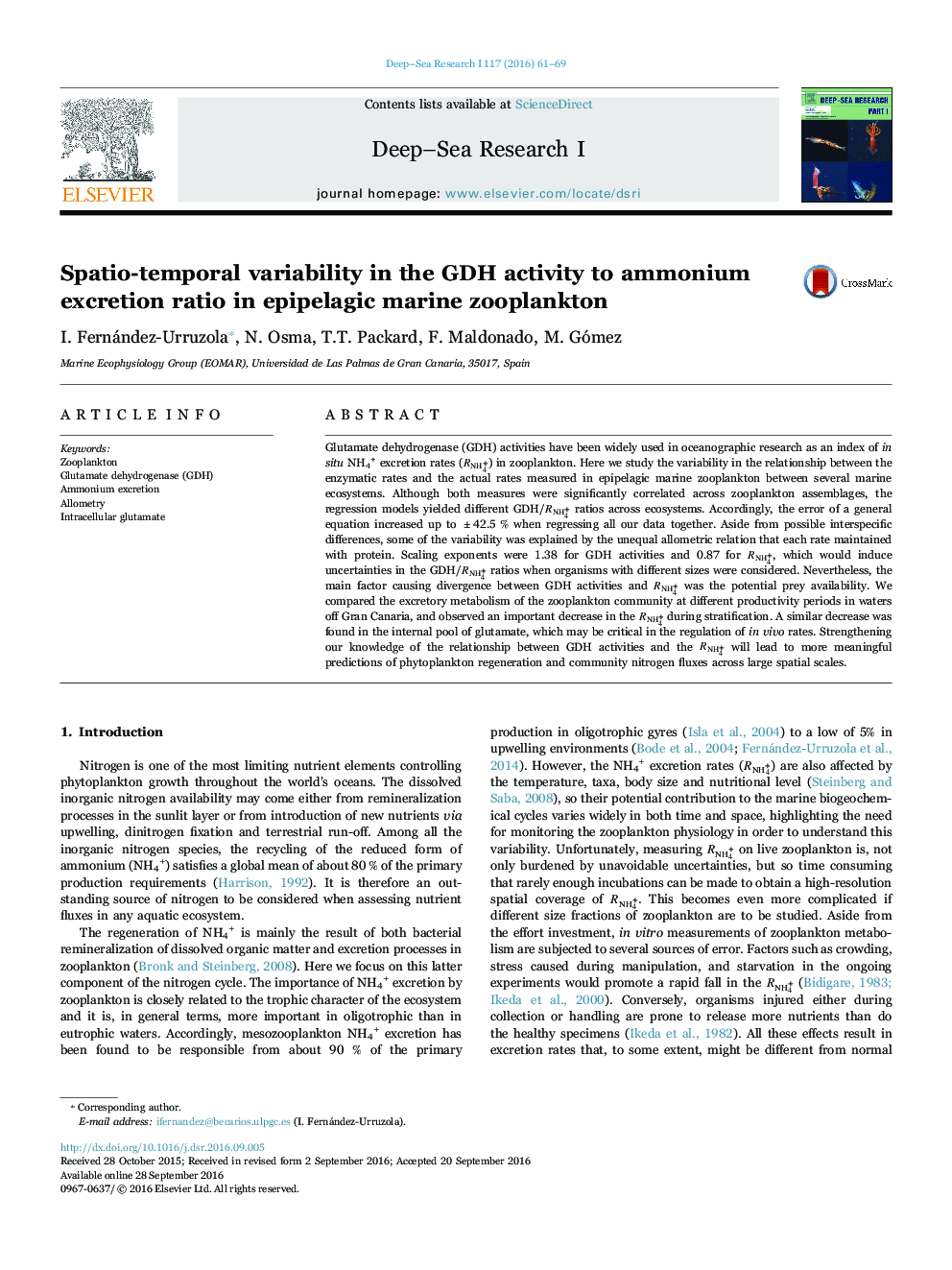| Article ID | Journal | Published Year | Pages | File Type |
|---|---|---|---|---|
| 4534376 | Deep Sea Research Part I: Oceanographic Research Papers | 2016 | 9 Pages |
•The relationship between zooplankton NH4+ excretion and GDH activities was studied.•Each rate maintained a different allometric relationship with protein.•The GDH/RNH4+ ratio showed variability between the North Atlantic, Indian Ocean and Benguela upwelling ecosystems.•A single ratio hardly explains the relationship between the two rates in all circumstances.•The internal pool of glutamate may be critical in the regulation of in vivo rates.
Glutamate dehydrogenase (GDH) activities have been widely used in oceanographic research as an index of in situ NH4+ excretion rates (RNH4+) in zooplankton. Here we study the variability in the relationship between the enzymatic rates and the actual rates measured in epipelagic marine zooplankton between several marine ecosystems. Although both measures were significantly correlated across zooplankton assemblages, the regression models yielded different GDH/RNH4+ ratios across ecosystems. Accordingly, the error of a general equation increased up to ±42.5 %% when regressing all our data together. Aside from possible interspecific differences, some of the variability was explained by the unequal allometric relation that each rate maintained with protein. Scaling exponents were 1.38 for GDH activities and 0.87 for RNH4+, which would induce uncertainties in the GDH/RNH4+ ratios when organisms with different sizes were considered. Nevertheless, the main factor causing divergence between GDH activities and RNH4+ was the potential prey availability. We compared the excretory metabolism of the zooplankton community at different productivity periods in waters off Gran Canaria, and observed an important decrease in the RNH4+ during stratification. A similar decrease was found in the internal pool of glutamate, which may be critical in the regulation of in vivo rates. Strengthening our knowledge of the relationship between GDH activities and the RNH4+ will lead to more meaningful predictions of phytoplankton regeneration and community nitrogen fluxes across large spatial scales.
